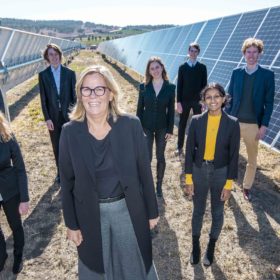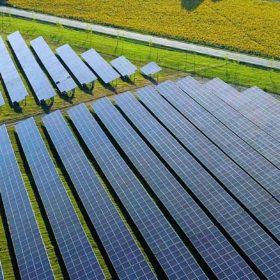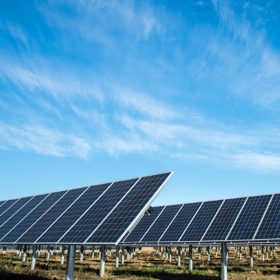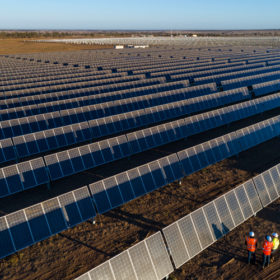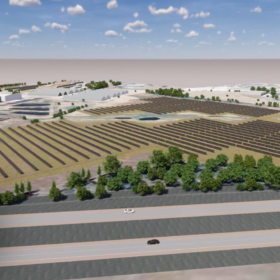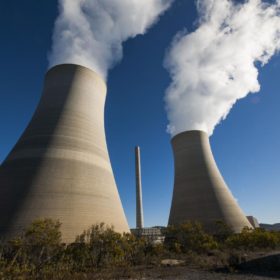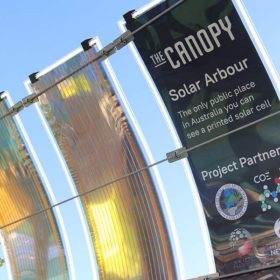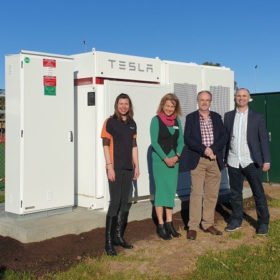64 MW of PV-powered knowledge sharing begins at UQ’s Warwick Solar Farm
The University of Queensland-owned and developed utility-scale Warwick Solar Farm is complete, bringing together the University’s ambitions to not only become 100% renewably powered, but to provide hands-on learning, research and development opportunities for generations of students seeking fulfilling employment that contributes to a greener future.
Aussie parents pester PM to fund solar for every school and childhood centre
Australian Parents for Climate Action have proposed an initiative called Solar our Schools and published open letter to Prime Minister Morrison calling for large-scale federal investment in solar and energy storage for every school and early childhood centre as part of Covid-19 recovery.
NZ Govt announces six new public sector clean energy projects
The New Zealand Government is quickly turning the antipodean rivalry over climate legislation and renewable energy integration into a veritable Bledisloe Cup. This is to say that for Australia the situation is now plain embarrassing. Today, NZ’s Climate Change Minister James Shaw announced six new projects to receive funding as part of its clean-powered public service fund.
UNSW research disproves outdated claim that energy transition is an economic hindrance
University of New South Wales researchers have published research disproving claims that the energy transition to large-scale wind and solar would hinder the global economy. The research, which ousts outdated and cherry-picked data while showing the economically salutary effects of renewables, comes as 500 UNSW staff face the axe due to the impact of Covid-19.
CEC calls on Canberra to let renewables power the Covid-19 economic recovery
Clean Energy Council Chief Executive Kane Thornton has penned a personal plea to Canberra to allow the renewable energy industry to lead the Covid-19 economic recovery, saying the green sector could put the country to work over the next decade if meaningful action was taken now.
Ah McCain…you’ve done it again! McCain to build Australia’s largest ‘behind-the-meter’ system
It’s crunch time for renewables and McCain Foods is chipping in with what is being called Australia’s largest ‘behind-the-meter’ renewable energy system at its production facility in Ballarat. The 8.2 MW system will feature 17, 000 solar panels and a co-generation technology feeding on scrap potato skins.
The results are in – carbon pricing works
Australian researchers have completed the world’s largest comparative study on carbon pricing and the results are a “crystal clear” message to governments around the world, but particularly Australia – carbon pricing works, and works well.
$4.9m in funding for UNSW Global Hydrogen Economy Training Centre
The faucet of federal funding for the future hydrogen economy keeps on flowing today as Minister for Education Dan Tehan announced $4.9m in funding for the development of the ARC Training Centre for the Global Hydrogen Economy. The announcement comes on the back of the establishment of the UNSW’s Hydrogen Energy Research Centre, a university-to-industry institute.
Printed Solar catches the light in first public display, foreshadows new manufacturing industry
The University of Newcastle’s development of world-leading printed solar technology has taken a massive step toward rapid commercialisation with its first public display. Due to the technology’s panoramic applicability, this day may very well be looked back upon as the day the very world as we know it changed, and changed for the better.
WA community battery rollout continues: Tesla battery launched in Margaret River
The highly successful Western Australian community battery rollout has caught another wave and poured another glass of fine Cab Sav with its newest launch in Margaret River. This particular installation is part of a five-year trial to identify even more prime locations for community energy storage.
